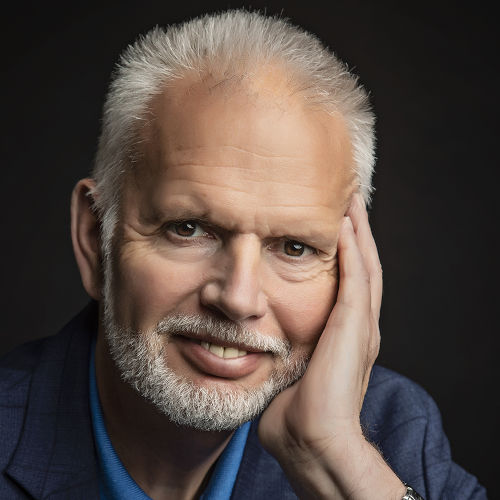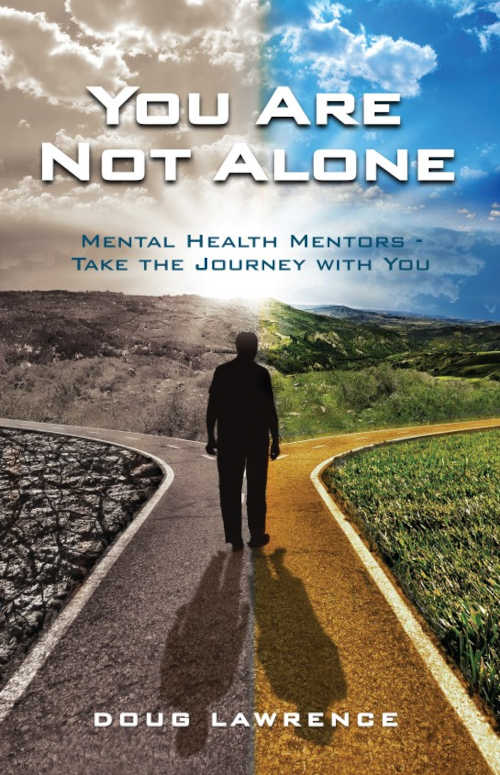An author finds a “path to healing” while researching mental health

Editor’s note: Both readers and writers alike can benefit from the research that author Doug Lawrence is conducting on mental health mentoring. Here, he shares with us some of his findings, which you can read more about in his recent book release, You Are Not Alone.
by Doug Lawrence
When I look at the status of our mental health, I am deeply concerned about where we are today and where we might be in a couple of years. Research is very much focused on things from an academic perspective with very little, if any, attention being paid to the solutions that could turn things around.
When we look at the support structure for mental health, it is hard not to see a support structure that is failing. Our mental health is deteriorating, and yet we choose to ignore the problem. The number of situations where mental health has been compromised continues to increase. Tragic outcomes such as suicide are on the increase:
- More than 700,000 people die due to suicide every year.
- For every suicide there are many more people who attempt suicide. A prior suicide attempt is the single most important risk factor for suicide in the general population.
- Suicide is the fourth leading cause of death among 15–19-year-olds.
With society being infested with Covid-19, additional stressors are taking their toll on the mental health and mental wellbeing of so many. It doesn’t appear there will be any letup for a long period of time. This will impact families, communities, and organizations unless something can be done to alter the course. I am seeing an increase in depression, anxiety and stress, and the breakdown of the family structure as a result of these additional stressors.
Covid-19 and other stressors are taking their toll on the mental health and mental wellbeing of so many.
The need to be working from home and sharing what is typically family space with what has now become work space has added a complexity to the family structure that we have not had to deal with before. When we add to the equation the need to homeschool our children it is no wonder that stress levels have increased and mental health and wellbeing have deteriorated. The on again–off again need to be shifting from working at home to working back at the office has not made things easy for family members.
 Employees are not expressing concerns about job security, as they have demonstrated that they do not need to be in the office to do their work. The question then is whether or not this work could be outsourced and provided by someone outside of the organization. This has caused employees to leave their current places of employment and look elsewhere. Having said all of that, there is at this time a shortage of workers in some industries. This entire scenario has impacted the mental health of so many.
Employees are not expressing concerns about job security, as they have demonstrated that they do not need to be in the office to do their work. The question then is whether or not this work could be outsourced and provided by someone outside of the organization. This has caused employees to leave their current places of employment and look elsewhere. Having said all of that, there is at this time a shortage of workers in some industries. This entire scenario has impacted the mental health of so many.
How do we address this? What can be done to make sure that the tragic outcomes mentioned earlier do not become the norm?
I have done considerable research on the topic of mental health and mentoring. As a result, I firmly believe that mentoring can in fact be a part of the support structure for mental health and mental wellbeing. Mentoring is a two-way, trusted relationship where the mentor and mentee both learn and grow together on a personal and professional basis. That trust is paramount to the success of the relationship. It is also important that the initial focus in the relationship be on the personal growth of the person that you are in a mentoring relationship with. That may include addressing self-esteem, self-confidence, self-worth, and self-doubt. Doing a quick “scan” at your initial meeting will help you determine the state of the relationship and what course of action is to be taken to help this person on their road to healing. Keep in mind that professional resources, such as counselors, psychologists, and psychiatrists may be required to assist along that road to healing.
As a mentor, you own the relationship, and need to be there to listen to and hear what your mentee is saying. Inside each and every conversation, there are hidden messages driven by trigger words that you need to be mindful of. If you are not present and actively listening and hearing, you will miss those trigger words. Trigger words guide us to where we are going next with the conversation.
My experience has shown that if I use proper Effective Mentoring skills, I can be a part of the support structure for mental health and provide a valuable, much-needed service for someone on the path to healing.
Doug Lawrence is the author of You Are Not Alone, and has been involved in the certification of mentors since 2009. He is the only person to hold a Certificate of Competence – Journey Mentor from the International Mentoring Community. Doug also served in the Royal Canadian Mounted Police for twenty-five years until 1999, attaining the rank of staff sergeant.